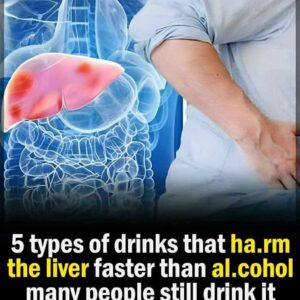An urgent warning has been issued over a new Covid-19 variant that experts suggest could be more infectious than previous strains, with case numbers on the rise in Britain.
The NB.1.8.1 variant has been found in 22 countries, including the UK, since it emerged in January, with cases recorded in Wales over the last few months, Wales Online reports.
It has also been tracked in popular British tourist hotspots, including Thailand, the Maldives and Egypt, with soaring cases also seen in Ireland, the US, Australia and parts of Europe.
Indeed, a whopping 257,280 Covid-19 cases have been recorded in Thailand this year, including 52 deaths, prompting an official warning from health authorities about the new variant.
And some experts ‘fear the strain is more infectious’ than its predecessors, leading to rapidly rising numbers.
Subhash Verma, professor of microbiology and immunology at the University of Nevada, Reno School of Medicine, told CBS News: ‘Data indicates that NB.1.8.1 does not lead to more severe illness compared to previous variants, although it appears to have a growth advantage, suggesting it may spread more easily.
‘In other words, it is more transmissible.’
The World Health Organisation (WHO) claimed that, using the evidence available, NB.1.8.1’s threat to the public health was ‘low at the global level’.
he body added: ‘Currently approved Covid-19 vaccines are expected to remain effective to this variant against symptomatic and severe disease.’
But it still issued an official warning about the strain, part of the Omicron variant, branding it a ‘variant under monitoring’ thanks to key mutatations and its global spread.
It said: ‘Despite a concurrent increase in cases and hospitalisations in some countries where NB.1.8.1 is widespread, current data do not indicate that this variant leads to more severe illness than other variants in circulation.’
There are not currently any travel restrictions associated with the variant and the WHO does not recommend any such measures.
Of the 22 countries where it had been recorded by late April, the variant constitutes around 10.7 per cent of all submitted strains, flying up from just 2.5 per cent four weeks before.
The WHO particularly emphasised its prevalence in Europe, the Western Pacific region – which includes Asia and Australia – and North and South America.
Professor Laura Herrero of Griffith University, Australia explained that the strain had become the dominant variant in China and Hong Kong by the end of April.
She said: ‘Common symptoms [of NB.1.8.1] include sore throat, fatigue, fever, mild cough, muscle aches and nasal congestion.
Gastrointestinal symptoms may also occur in some cases.
‘The WHO has not yet observed any evidence it causes more severe disease compared to other variants.
‘Reports suggest symptoms of NB.1.8.1 should align closely with other Omicron subvariants.’
As always, NHS guidance says that if you are experiencing Covid symptoms, you can protect yourself and others by staying at home and avoiding contact with other people for five days after a positive test, and three days if you or you child are under 18.




